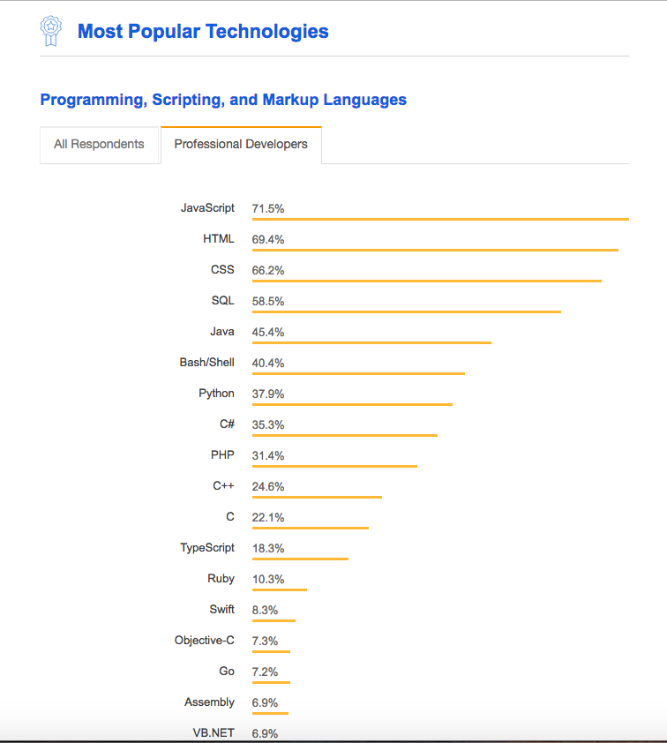The purpose of this tutorial is to choose the best language for iOS native project. To start iOS project, there are lots of factors to consider, but the key decision is choosing the best programming language for the development from Swift and Objective C. In this tutorial, we are going to explain which is best? Swift or Objective C?
Basic Introduction
Objective C and Swift are programming languages used to create Apple software products.
Objective C is the general purpose programming language used to write software for OS X and iOS. It was first introduced in 1984. It is the fundamental superset of C programming language and added object-oriented concept and dynamic runtime.
Swift is a powerful and intuitive programming language for macOS, iOS, watchOS and tvOS. It was first introduced in June 2014 by Apple and became open source in 2015. It was described as “Objective C without C”. Swift is fast, safe by design, and modern language in development. Apple created Swift to work for both Cocoa and Cocoa Touch. A developer can take advantage of the best features of Swift by replacing code written in Objective C with Swift.
Why should we use Swift over Objective C?
Here are few reasons why we should use Swift over Objective C :
1) Open Source
The main advantage of choosing Swift is an open source programming language. Apple announces swift as open source in 2015. Swift is open source which makes it easier for the developer to upgrade source code and easy to integrate with third-party tool.
2) Easy Syntax
Swift is clean syntax, which makes it easy to read and write. We need to write less code in Swift compare to Objective C. Because swift drops many legacy conventions like semicolon to end lines. Another major change is method call does not write inside [ ] bracket mess in Swift. Instead, method and function call using a comma-separated list of parameters within parentheses.
Example: here is the example of declaring 2 variables and print the value with concat it.
Objective C
NSString *name = @“Vishal”; int days = 1; NSString *msg = [NSString stringWithFormat:@"posted by %@ (%d days ago)", name,days]; NSLog(@“%@”, msg);
Swift
let name = "Vishal" let days = 1 let msg = "posted by \(name) \(days) ago" print(msg)
3) Easy to Maintain
Another main advantage of Swift is the way of the code separator in two files. In Objective C, the code is divided into two code files 1) Interface file (.h ) which is the header file and 2) Implementation file (.m) whereas in Swift one file contains both interface and implementation. So no need to handle the separate file in Swift.
4) Safer Language
Objective C, like other C languages, uses pointer which gives direct access to data. Swift has no pointers which means Swift is safer language. However, in your code found nil in the code the app will continue to run using nil variable handler. Swift provides strong typing system to exclude the error and as a result it improves readability. And it provides Optional type which doesn’t exist in Objective C. Swift optional is a type that can hold value or no value. Using Optional variable error handling on production time.
For example:
let if name = "Vishal"{
print(name)
}
5) Swift is Faster
Swift is the fastest language and almost as faster as C++. It is built in Low-level virtual machine language, which is faster and smarter as previous C compilers. Also it is faster than Objective C and python. As per Apple official document, swift is upto 2.6x faster than Objective C and 8.4x faster than Python 2.7.
6) Better Memory Management
In Object-oriented programming, memory leak is the main issue, due to memory leak, application may crash or stuck. For that cause Objective C and Swift handles automatic memory management using Automatic Reference Counting (ARC). In Objective C Cocoa touch API support ARC, but In Core Graphics API ARC is not available. So it has been handled by the developer itself. When the app gets large data, graphics or video in buffer, app is being crashed or freezed. To fix this issue, Swift support ARC for all type of API and there is no need to handle memory management itself by developer. As a result, it becomes time-saver for developers.
7) Support Dynamic Libraries
Apple created a dynamic library to reduce the launch time of app and memory footprint using dynamic libraries (*.dylib). Instead of static libraries(*.a) reduces the executable file size of the app.
Swift supports dynamic libraries, where Objective C supports only static library.
The main difference between a static library and dynamic library is that dynamic library linked with the executable file during a runtime not copy into it where static library linked during the start of program and copy on executable file. As a Result, swift executable file size is smaller and in objective C file size is more compare to swift so startup of application time is faster in Swift compared to Objective C.
8) Most popular Technology 2018
According to the survey of StackOverflow 2018, the Swift is the most popular technology compare to Objective C.

9) Apple Focuses on Swift
Apple supports swift as the primary language for development in MacOS, iOS, TvOS, watchOS. The Apple Worldwide Developers Conference (WWDC) 2018 released Swift 4.2. As per Apple documentation, it was released with many new features like :-
-Faster, easier use of string that retains Unicode correctness and support for creating, using and managing substring.
-The smart key path for type-safe
Conclusion
Nowadays Swift is more popular. There are lots of benefits of using swift and as Apple supports it so I can say that we should use Swift instead of Objective C. I hope that will help to choose perfect one from Objective C vs Swift.








